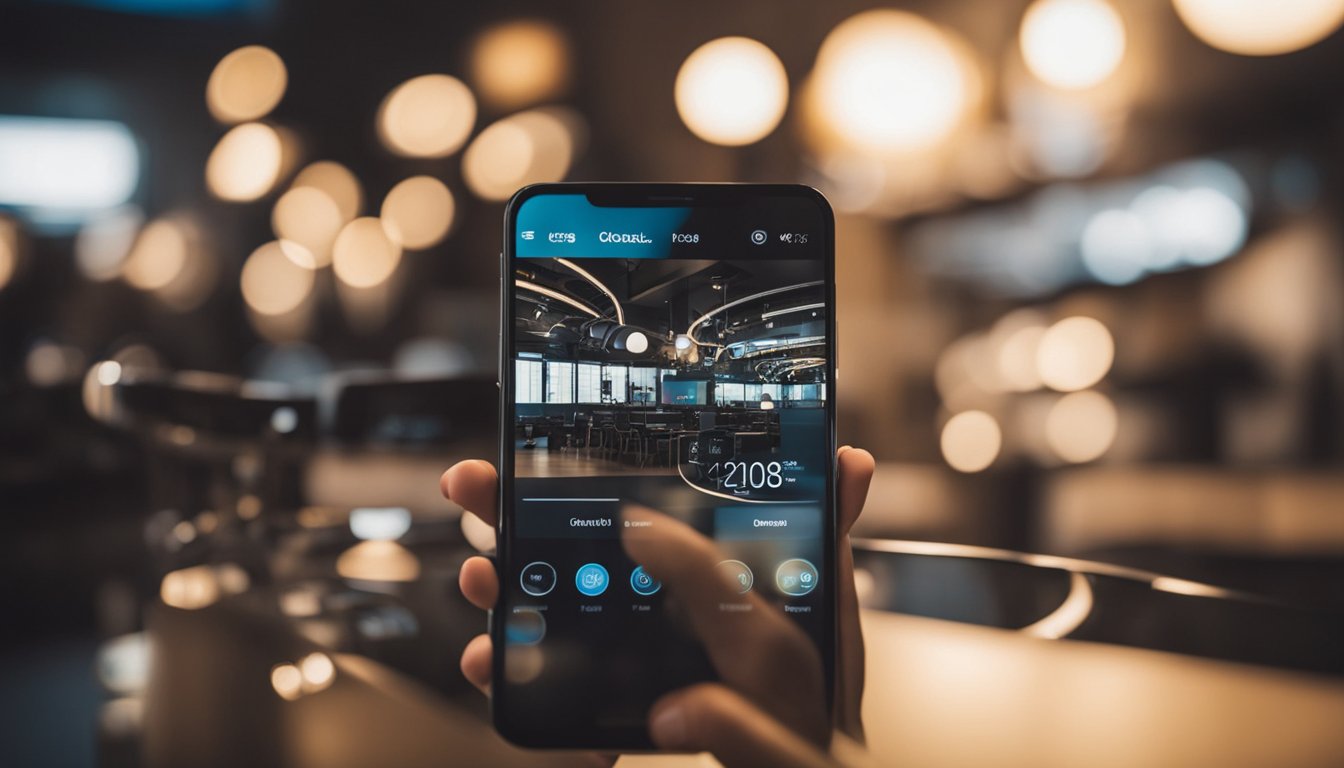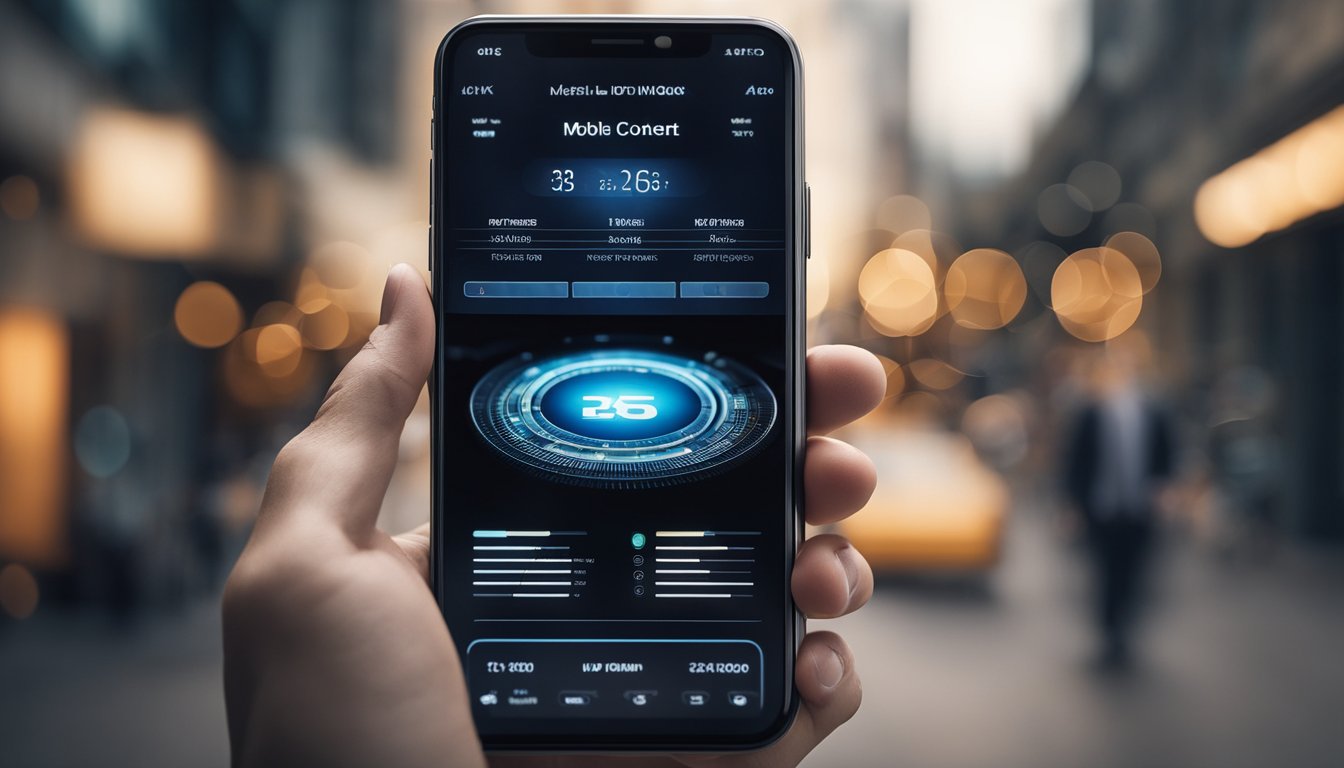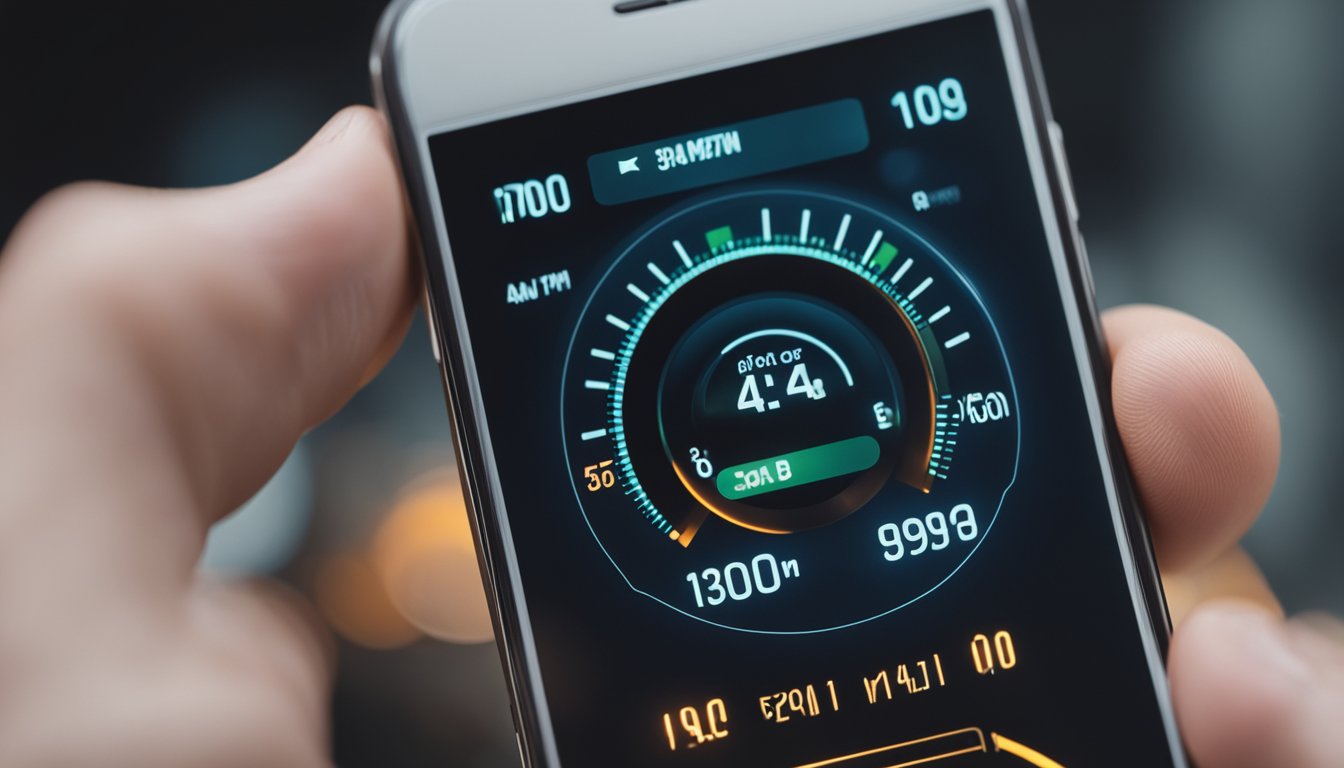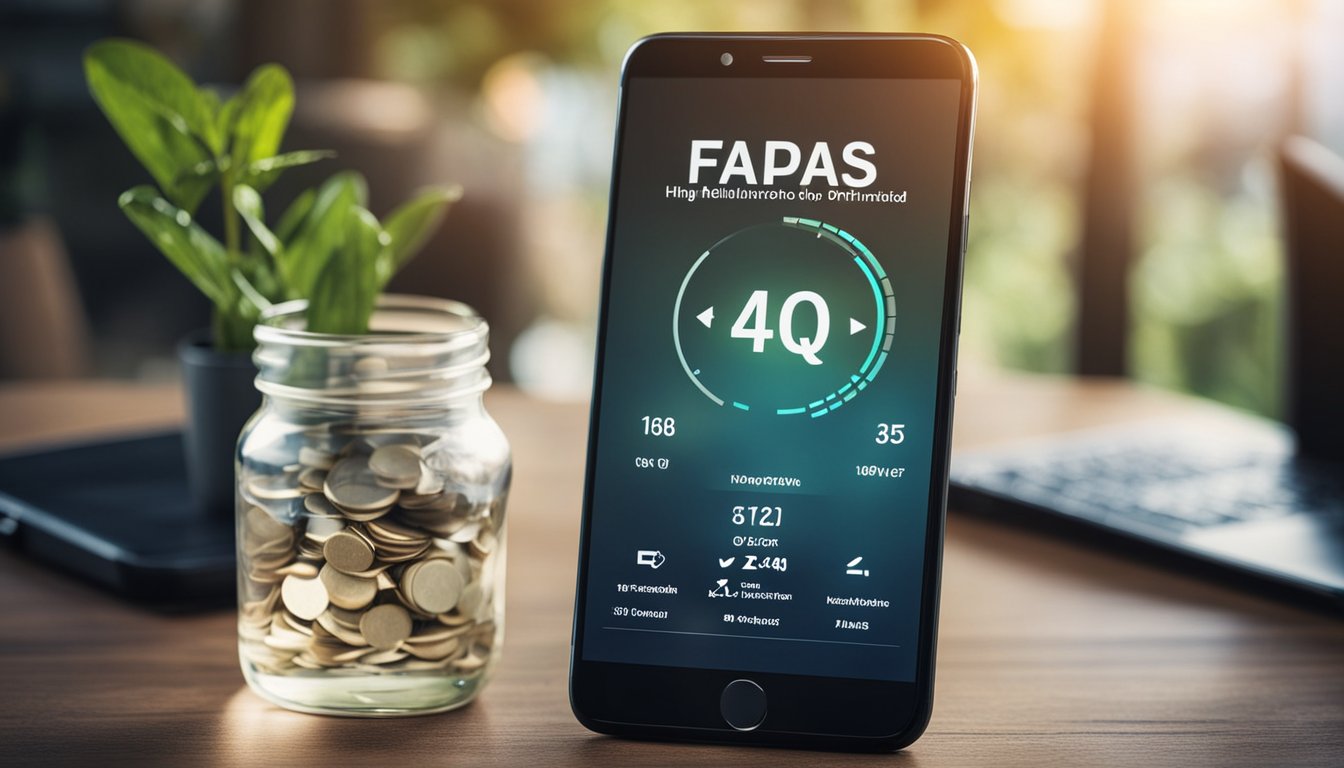Optimize Performance and Speed Create a HighPerformance Mobile App
Creating a mobile app that is optimized for performance and speed is crucial for ensuring a positive user experience. With the increasing use of mobile devices, it is more important than ever to design apps that are fast, responsive, and easy to use. As a developer, it is essential to understand the importance of app performance and take the necessary steps to optimize your app for speed.

One of the key factors that can impact the performance of your mobile app is the design and content. This includes everything from the layout and navigation to the images and text used in the app. To optimize your app for speed, it is important to design it with performance in mind. This means minimizing the use of large images and videos, using efficient coding practices, and optimizing the app for different platforms and mobile devices.
In this article, I will provide a comprehensive guide on how to create a mobile app that is optimized for performance and speed. I will cover everything from understanding the importance of app performance to optimizing app design and content. By following these best practices, you can create a mobile app that provides a seamless and enjoyable user experience.
Key Takeaways
- Understanding the importance of app performance is crucial for creating a successful mobile app.
- Optimizing app design and content can greatly improve app performance and speed.
- By following best practices for mobile app performance optimization, you can create an app that provides a seamless user experience.
Understanding the Importance of App Performance

As a mobile app developer, I know that optimizing app performance is crucial for creating a successful app. In this section, I will discuss the impact of app performance on user experience, the technical aspects of performance, performance measurement tools, dealing with performance issues, and considerations for different devices.
Impact on User Experience
Fast and reliable apps with efficient performance improvements provide a seamless user experience. Users expect apps to load quickly and respond to their actions without any delays. Slow loading times, crashes, and other performance problems can lead to frustration and negative user feedback, reviews, and ranking. Therefore, optimizing app performance is essential for maintaining a good reputation and ranking in app stores.
Technical Aspects of Performance
App performance is affected by various technical aspects such as load time, response time, memory usage, battery usage, network usage, server, and services. Therefore, it is important to optimize these aspects to ensure stable and efficient performance. Tools such as Android Studio, Memory Profiler, Startup Profile, and App Startup Library can help developers monitor and optimize app performance.
Performance Measurement Tools
To ensure optimal app performance, it is important to measure and monitor it regularly. There are various tools available for performance testing, auditing, and monitoring such as Firebase Performance Monitoring, AppDynamics, and New Relic. These tools can help developers identify performance issues and optimize app performance.
Dealing with Performance Issues
When performance issues arise, it is important to identify and resolve them promptly. Performance issues can be caused by various factors such as slow loading, crashes, and slow download time. Developers can use tools like Firebase Crashlytics and AppDynamics to identify and resolve performance issues.
Considerations for Different Devices
Different devices have different hardware and software configurations, which can affect app performance. Therefore, it is important to consider the differences between devices when optimizing app performance. Developers should test their apps on different devices and optimize their apps for different modules and technologies.
In conclusion, optimizing app performance is essential for creating a fast, reliable, and efficient app that provides a seamless user experience. Developers should use performance measurement tools, monitor app performance, and resolve performance issues promptly to ensure optimal app performance.
Optimizing App Design and Content

As a mobile app developer, I understand the importance of optimizing app performance and speed. Here are some best practices for optimizing app design and content:
Designing for Performance
Design plays a crucial role in app performance. A well-designed app can significantly improve user experience and app performance. When designing an app, it is important to consider the following:
- UI/Interface: A responsive and intuitive interface can help reduce app loading time and make the app feel faster.
- Offline Mode: Designing for offline mode can improve app performance and user experience in areas with poor network connectivity.
- Optimize Offline Mode: Implementing offline mode with a smart strategy can help balance app performance and storage space usage.
Optimizing Content and Resources
Optimizing content and resources can help reduce app size and improve app performance. Here are some best practices for optimizing content and resources:
- Images: Use appropriate file formats such as WebP or PNG and compress images to reduce file size.
- Lazy Loading: Use lazy loading to load content only when it is needed, which can help reduce app loading time and improve app performance.
- Local Storage: Use local storage to store content and resources that are frequently accessed to reduce server requests and improve app performance.
- Content License: Ensure that all content used in the app is licensed correctly to avoid any legal issues.
Code Quality and Libraries
Code quality and libraries can have a significant impact on app performance. Here are some best practices for optimizing code quality and libraries:
- Java/OpenJDK: Use the latest version of Java/OpenJDK to take advantage of the latest performance improvements and bug fixes.
- Libraries: Use libraries that are optimized for app performance and size, such as DEX layout optimizations and R8.
- App Startup Library: Use an app startup library to improve app startup time and reduce main thread usage.
Optimizing App Startup and Load Time
App startup and load time are critical factors in app performance. Here are some best practices for optimizing app startup and load time:
- Cache Data: Cache frequently accessed data to reduce server requests and improve app performance.
- Client-Server Interaction: Optimize client-server interaction to reduce network latency and improve app performance.
- Redirects: Reduce the number of redirects to improve app loading time and performance.
Managing App Size and Storage Space
App size and storage space are important considerations when optimizing app performance. Here are some best practices for managing app size and storage space:
- App Size: Monitor and optimize app size to reduce the amount of storage space required by the app.
- Application Size: Reduce the size of the application by removing unused code and resources.
- Storage Space: Use storage space efficiently by storing data and resources in the appropriate location.
By following these best practices, you can optimize your mobile app for performance and speed, providing a great user experience while using minimal resources.
Final Thoughts on Mobile App Performance

In conclusion, optimizing mobile app performance is crucial for retaining users and increasing user engagement. To achieve this, developers need to focus on enhancing user experience by ensuring faster loading times, smooth navigation, and seamless interactions.
To optimize app performance, developers can use various testing tools and libraries, such as Android Studio, memory profiler, and app startup library. Additionally, developers can use caching to speed up data access and reduce the number of times an app needs to access data from the server, which can improve app performance.
Design and UI are also essential components of app performance. Developers should ensure that the app's interface is responsive and easy to use. They can also optimize the app's functionality by reducing app size and minimizing network usage.
Moreover, developers should pay attention to app speed and size to ensure that the app does not take up too much storage space or take too long to download. They can achieve this by using image compression, lazy loading, and local storage.
Finally, monitoring app performance is crucial to identify performance problems and ensure stability. Developers can use user feedback, reviews, and ranking to improve the app's reputation and optimize app performance for different devices and technologies. By implementing these strategies, developers can achieve significant performance improvements and ensure that their app is fast, reliable, and efficient.
Frequently Asked Questions

How can I improve the performance of my mobile app?
Improving the performance of your mobile app starts with optimizing the code and resources. You can also improve app performance by reducing the size of the app, using caching techniques, and optimizing network connectivity. It is important to test your app on real devices and networks to identify any performance issues.
What are some key mobile app performance metrics to track?
There are several key mobile app performance metrics to track, including app load time, app response time, app crashes, and app usage data. Monitoring these metrics can help you identify performance issues and make data-driven decisions to optimize your app.
What are some techniques for optimizing Android apps?
To optimize Android apps, you can use techniques such as efficient code and resource management, reducing the size of the app, using caching techniques, optimizing network connectivity, and monitoring performance metrics. It is also important to test your app on different devices and operating systems to ensure optimal performance.
How can I increase the speed of my mobile app?
To increase the speed of your mobile app, you can use techniques such as reducing the size of the app, using caching techniques, optimizing network connectivity, and minimizing app load time and response time. It is important to test your app on real devices and networks to identify any performance issues.
What is app optimization and why is it important?
App optimization is the process of improving the performance and speed of a mobile app. It is important because it can improve user experience, increase user engagement, and boost app retention rates. By optimizing your app, you can also reduce app crashes and improve app ratings and reviews.
What are some best practices for developing high-performance mobile apps?
Some best practices for developing high-performance mobile apps include optimizing code and resources, reducing app size, using caching techniques, optimizing network connectivity, and monitoring performance metrics. It is also important to test your app on different devices and operating systems to ensure optimal performance.









